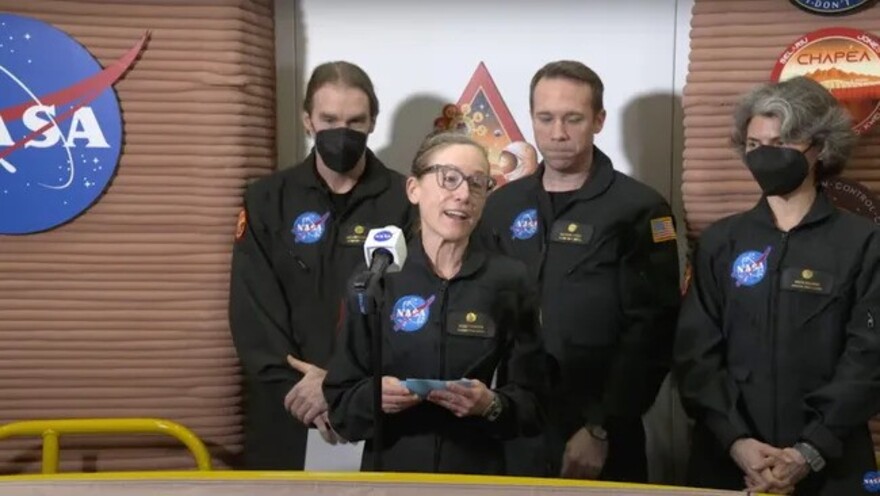On Saturday, the CHAPEA-1 experiment organised by NASA came to an end in the United States. For 378 days, four volunteers were in the completely isolated environment of Mars Dune Alpha, which reproduced the station on Mars in every detail.

A Simulation of a Martian station
The US has completed the CHAPEA-1 experiment, which aimed to find out whether autonomous stations could exist on Mars. For 378 days, four volunteers were in an isolated environment that simulated habitation on this planet. On Saturday, 7 July, they finally left.
Scientists have long been concerned about how a person can survive a long stay in a confined space when even radio communication with the Earth is neither stable nor instantaneous. That is why experiments to simulate Martian environments, where the mental health of participants was carefully checked, have been conducted many times.
However, so far they have not lasted longer than a few months. CHAPEA-1 was the first experiment to last more than a year. During it, four volunteers were kept inside an isolated room at the Johnson Space Centre in Houston.
The course of the experiment
The four volunteers for the CHAPEA-1 mission were Kelly Huston, Anca Celariu, Ross Brockwell and Nathan Jones. Their home for the past year and more has been Mars Dune Alpha — a 158 m2 3D-printed habitat designed to feel like an isolated outpost of the Red Planet.
Mars Dune Alpha itself deserves special attention. The fact is that all of its buildings were printed on a 3D printer. In addition, the developers created a very convincing imitation of the red Martian surface nearby. So, the participants of the experiment could, among other things, go outside in spacesuits, feeling like real inhabitants of an alien base.
It is already known that the participants of the experiment did not experience any special psychological problems or unpleasant sensations. On the contrary, they say that they have become more appreciative of their relatives, with whom they have not been able to communicate for a year. NASA plans to use the results of the experiment in future missions.
Based on materials from www.space.com

